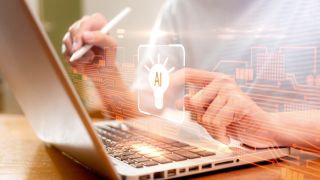Education
Revolutionizing Education
How AI tutors are transforming learning and what educators need to know.
Posted September 4, 2024 Reviewed by Davia Sills
Key points
- The use of AI in education is not a new phenomenon; it dates back nearly a century.
- AI can be used to complement rather than replace human teachers.
- With or without AI, student effort plays a key role in determining learning outcomes.

In the ever-evolving landscape of education, the integration of artificial intelligence (AI) continues to redefine how students learn and how educators teach. The recent study “Transforming Learning: Assessing the Efficacy of a Retrieval-Augmented Generation System as a Tutor for Introductory Psychology” by Slade et al. (2024) explores the impact of AI tutors on student learning outcomes, presenting both promising advancements and important considerations for the future of AI in education.
The Evolution of AI in Education
The use of AI in education is not a new phenomenon. It dates back nearly a century, with early innovations like the automated multiple-choice machine and B.F. Skinner’s teaching machine. These early tools were designed to allow students to learn at their own pace, a goal that remains central to the AI in Education (AIED) movement today. However, the capabilities of AI have grown exponentially, especially with the advent of large language models (LLMs) like GPT-4. These models can interact with users in remarkably human-like ways, marking a significant leap forward in educational technology.
The Study: AI Tutors in Action
The study by Slade et al. (2024) focuses on the use of a Retrieval-Augmented Generation (RAG) system, a more advanced form of AI that supplements its internal knowledge base with external data to provide more accurate and relevant responses. The researchers sought to understand whether using AI assistance in completing writing assignments would impact students' retention of learning material.
In the study, undergraduate psychology students were randomly assigned to complete a writing assignment under three conditions: with the assistance of a RAG-based AI tutor, with unmodified GPT-4Turbo, or without any AI assistance. The results were intriguing. Contrary to the initial hypothesis, which suggested that students using AI would score lower on subsequent quizzes, those who used AI—whether the RAG-based tutor or GPT-4Turbo—actually scored higher on average than those who did not use AI. This suggests that AI tools, when used effectively, can enhance learning rather than hinder it.
Effort Matters
An important finding of the study was the role of student effort in determining learning outcomes. Regardless of whether students used AI, those who reported putting more effort into their assignments scored higher on quizzes. This underscores a critical point—while AI can be a powerful tool for learning, its effectiveness is still largely dependent on how students choose to engage with it. The technology alone cannot replace the need for active participation and effort from students.
The Potential and Limitations of AI Tutors
The study’s findings highlight the potential of AI tutors to support learning, particularly in content areas where the AI has been well-trained. However, the lack of significant difference between the RAG-based system and the unmodified GPT-4Turbo raises questions about the necessity of more complex AI systems for certain tasks. For simpler assignments or content areas that are well-represented in existing LLMs, freely available tools like GPT-4Turbo may be just as effective as more specialized systems.
However, the study also points to limitations and areas for further research. One concern is the phenomenon of AI “hallucinations,” where the model generates plausible sounding but incorrect responses. The study did not specifically measure the accuracy of the AI-generated content, but this is an area that warrants attention, especially as AI tools become more integrated into educational settings. Ensuring that students are receiving accurate information is critical for the credibility and effectiveness of AI tutors.
Ethical and Practical Considerations
As AI becomes more prevalent in education, ethical considerations also come to the forefront. The study touches on concerns related to data security and privacy, particularly regarding how student data is used and stored by AI systems. Additionally, there is the question of access—if only expensive, proprietary AI systems are effective, this could exacerbate educational inequalities. However, the possibility that open-source models could be as effective as their costly counterparts offers hope for more equitable access to AI-driven educational tools.
Another important consideration is the impact of AI on traditional teaching roles. While AI can provide valuable support, it should complement rather than replace human teachers. The personal connection and nuanced understanding that human educators bring to their students’ learning experiences cannot be fully replicated by AI.
Key Takeaways for Educators and Institutions
For educators and institutions considering the integration of AI into their teaching, there are several key takeaways from this study:
- Use AI as a Complement, Not a Replacement: AI can enhance learning, but it should be used to support, not replace, traditional teaching methods.
- Encourage Student Effort: The effectiveness of AI tools is closely tied to the effort students put into their learning. Educators should encourage active engagement with AI tools.
- Focus on Accuracy: Ensure that AI tools are providing accurate information and supplement them with human oversight where necessary.
- Consider Accessibility: Strive to use AI tools that are accessible to all students to avoid widening the gap between those who can afford advanced technologies and those who cannot.
- Address Ethical Concerns: Be mindful of data privacy, security, and the broader ethical implications of using AI in education.
The Future of AI in Education
The integration of AI into education presents both exciting opportunities and significant challenges. As the study by Slade et al. (2024) illustrates, AI tutors have the potential to enhance learning, but their success depends on how they are used and the context in which they are deployed.
As educators, it is crucial to approach AI with both enthusiasm for its possibilities and caution regarding its limitations. As Voltaire (and Uncle Ben to Peter Parker) said, “With great power comes great responsibility.” By carefully considering the role of AI in education, we can harness its potential to transform learning for the better.
References
Slade, J. J., Hyk, A., & Gurung, R. A. R. (2024). Transforming learning: Assessing the efficacy of a retrieval-augmented generation system as a tutor for introductory psychology. Proceedings of the Human Factors and Ergonomics Society Annual Meeting. https://doi.org/10.1177/10711813241275509




